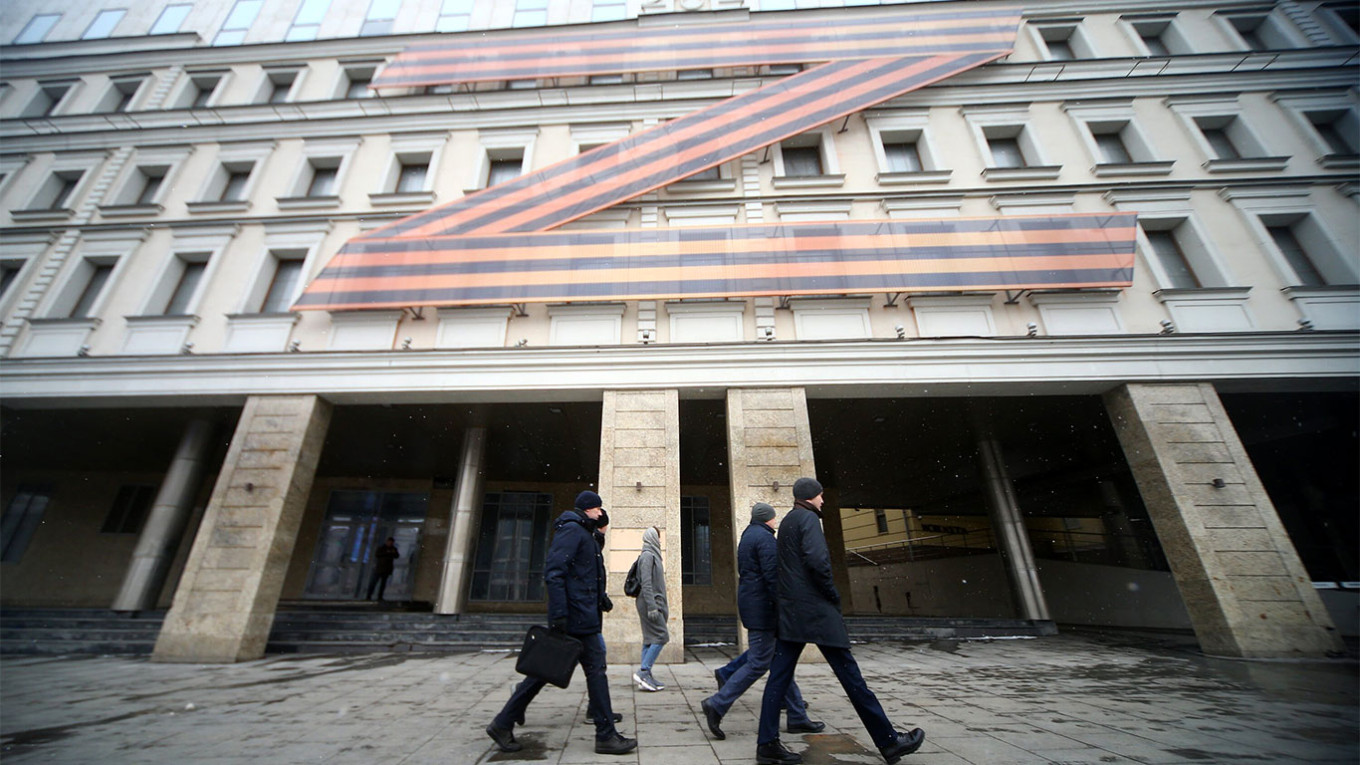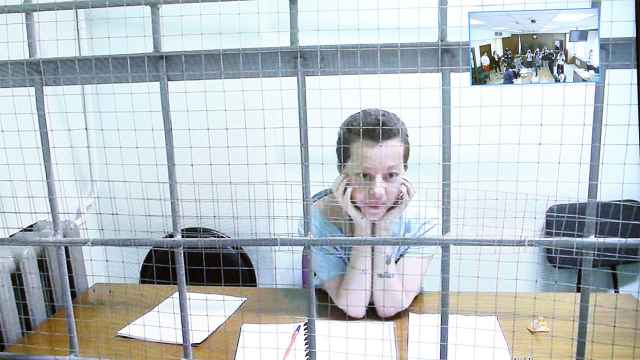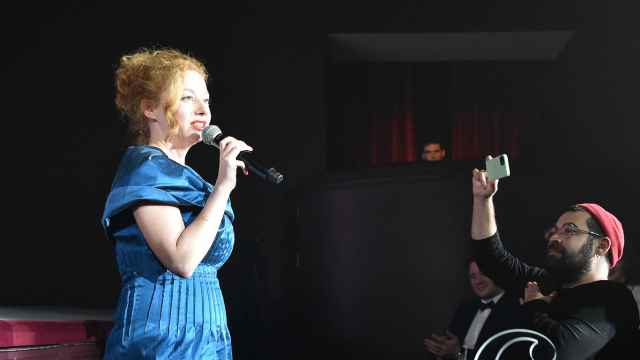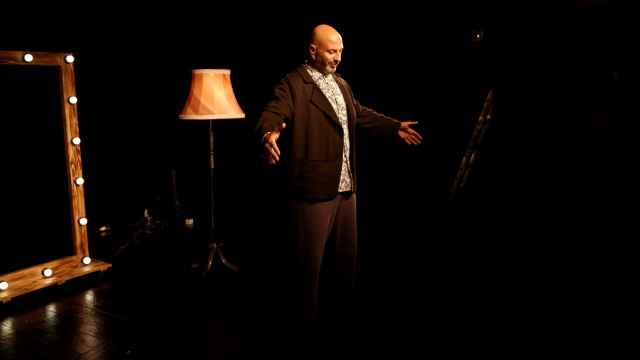“Creative unions are back where they were under Soviet power — so-called 'creatives' feeding at the state trough and afraid of their own shadows.”
That is how Nina Agisheva-Nikolaevich, a well-known Russian theater critic, commented on Facebook about one of the most significant recent cases in the Russian theater world.
She was referring to Vladimir Mashkov's nomination as President of the Union of Russian Theater Workers. Although he is an actor and director, today he seems busier supporting Russia's invasion of Ukraine. He put up a gigantic "Z" — a war symbol — on the facade of his Tabakov Theater.
Mashkov’s appointment at the end of 2023 suggests a major change in the organization in the coming years. The Union possibly will probably stagnate, playwright Mikhail Durnenkov told The Moscow Times.
“There will be more reporting about concerts and pro-Kremlin events. We will hear less about the Union of Russian Theater Workers due to political changes in society, or rather, we will not hear about it at all. Mashkov might be an active fool, but even he will have a hard time figuring out how to keep ahead of everyone.”
Before Russia's invasion of Ukraine, Durnenkov also was a member of the organization. He was expelled after openly opposing the war. Performances of his plays were also canceled.
In 2022 Mikhail was not the only theater professional who had to end his career in Russia. That year many actors, directors and playwrights left the country. In 2023, the situation remained unchanged. The directors who signed a petition urging President Vladimir Putin to end the war began to lose their posts.
Russian director Andrei Moguchy was removed from the post of director of the Bolshoi Drama Theater in St. Petersburg. He was fired despite the fact that under his leadership the theater had SRO attendance most nights, updated the repertoire, and established generational continuity, which is critical for Russian theaters with a long history.
Mikhail Bychkov, the founder of the Voronezh Chamber Theater and a well-known director, was also fired in 2023, as was Vladimir Urin, the director of the Bolshoi Theater. These were just a few of the dismissals.
The cultural leaders who signed the petition have not been forgiven, Elena Kovalskaya, a famous theater critic and former director of the Meyerhold Center, told The Moscow Times.
“The connection is obvious. All the signatories of this letter — these are not just directors, but theater managers, too — were either fired or would have been fired if they had not demonstrated repentance by taking their theaters on tour in the occupied territories,” Kovalskaya said. “In the summer of 2020, Viktor Ryzhakov was fired from Sovremennik, Maria Revyakina was fired from the Theater of Nations, then the Union of Theater Workers launched a reform proposal to remove the directorate of the Golden Mask festival, which was headed by Revyakina. They put a new directorate in its place. And so on. Strictly speaking, these are not dismissals. In most cases the managers and directors just didn’t have their contracts renewed.”
Playwright Durnenkov said that someone might lose their job but not their career.
“It depends on how public their statements were and how well-known they were. I know people who have continued to work, although not in their pre-war jobs and usually not in Moscow.”
Durnenkov was describing the most positive scenarios.
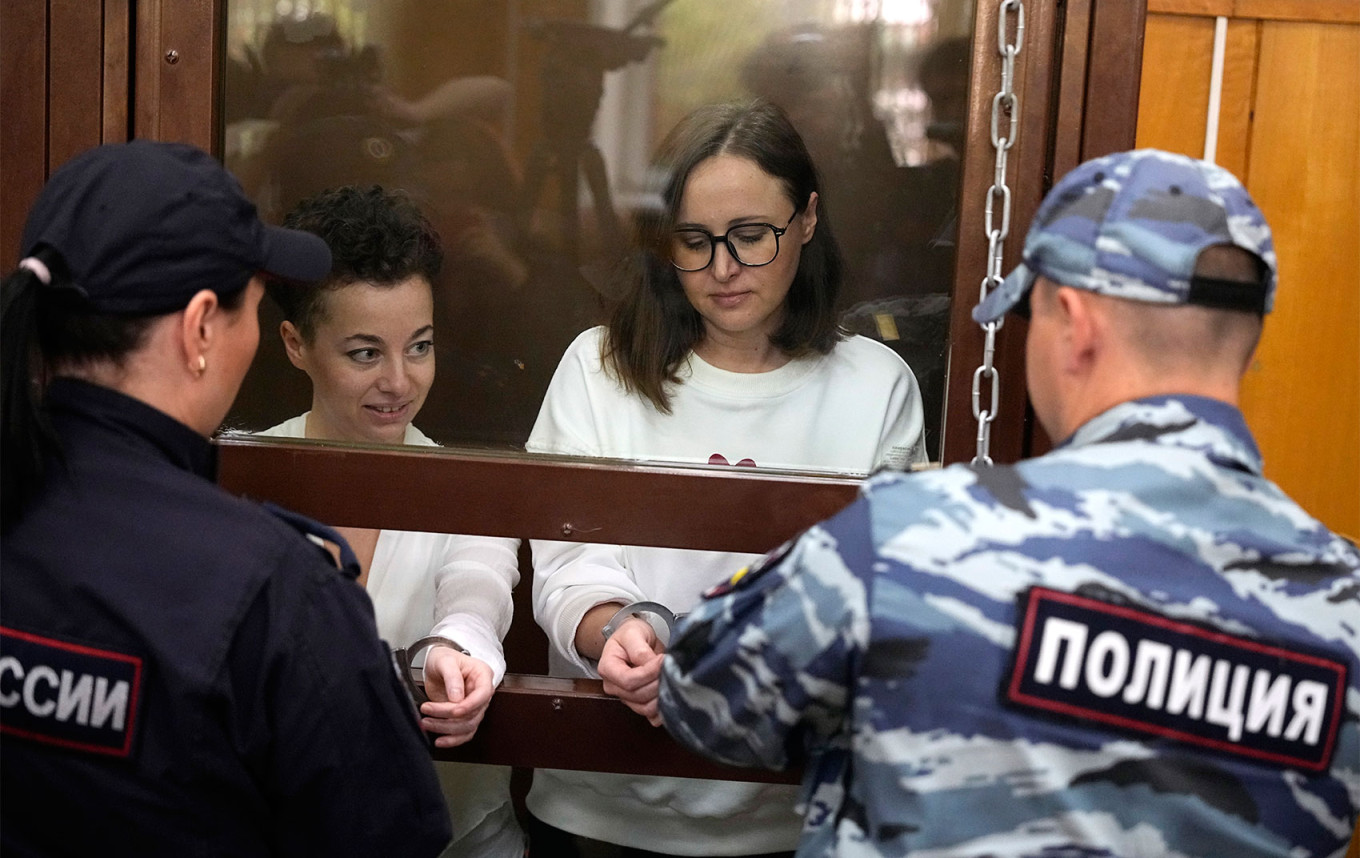
In 2023 independent directors could face not only dismissals and having to stop work, but also criminal charges. The most notorious of them was the arrest of director Yevgenia Berkovich and Svetlana Petriychuk. They are accused of “publicly justifying terrorism in the media” with their play, “Finist, The Bright Falcon” about women from Russia, Kazakhstan and Uzbekistan who married ISIS members.
In 2021 the National Liberation Movement of Russia published an article about the performance. Members of the organization called the play “anti-Russian” and accused the creators of referring to Orthodox Christianity “in a negative way” as well as “justifying terrorism and extremism” and “glorifying ISIS militants.”
The prosecutor's office noticed the denunciations only in 2023.
The case spread fear in the theater world, Kovalskaya said.
“In Russia, two artists are in jail for justifying extremism, which the investigation is not even trying to prove. This is arbitrariness. The theater community lives in fear, and this is beneficial to the authorities — they do not have to waste resources on surveillance and mass repressions.”
This was the first time cultural leaders in modern Russia were arrested for the content of their performance. Would it be possible to put on bold productions that touched on social issues in Russia?
In this atmosphere of fear, some theaters agreed to produce patriotic plays or go on tours in occupied Ukrainian territories.
On Nov. 18, the Army Theater presented a concert called “The Path to Victory” about the events in Donbas, also made with the help of a grant from the Presidential Fund for Cultural Initiatives.
On Oct. 7 and 18 in Norilsk, the Mayakovsky Polar Drama Theater produced a performance based on two books by propagandist Zakhar Prilepin dedicated to the fighting in Ukraine in 2014 — “Militia Romance” and “No Stranger’s Troubles.”
The Vakhtangov Theater showed the play “The Cry of the Lobster” in occupied Berdiansk and Melitopol.
The Tula Theater for Young Spectators put on the play “There is No Death,” based on the essays of military commander Dmitry Steshin and the prose of Zakhar Prilepin.
Directors who do not want to play by the rules of censorship are looking for safe ways to communicate with the audience. They are going “back into the future,” remembering how theaters in the U.S.S.R. spoke “between the lines.”
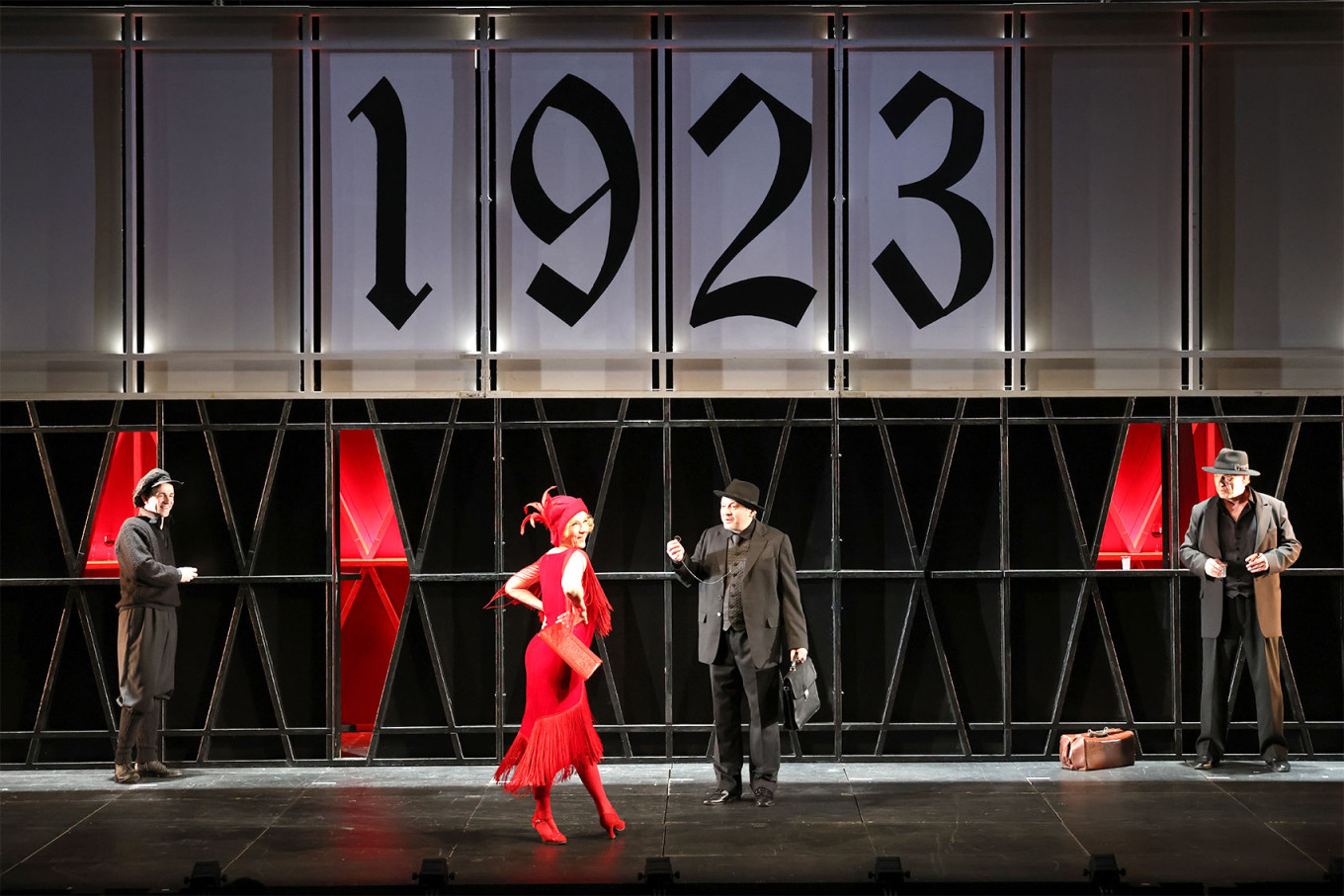
A play that premiered in 2023 is an example of subtle communication that has been successful. The play "Twenty-Third" based on Remarque's novel "The Black Obelisk" was performed in Peter Fomenko's theater workshop. This is the story of a man who tries not to lose his humanity in the midst of a world turned upside down during World War I. But it is clear from the performance that the director is not referencing the past, but the present.
Another opportunity to continue to develop the theater is to do it outside the country, particularly in Europe. But Durnenkov doesn’t think these productions are part of the Russian theater world.
“Of the five projects that I produced in a year, only one was performed in Russian and was intended for the Russian-speaking public,” he said. “This was because it was initially assumed that this was a production that would be on tour. But this is only temporary. We will all switch to the languages of the countries in which we live, either using English, or in keeping with the recent trend, a mixture of different languages.”
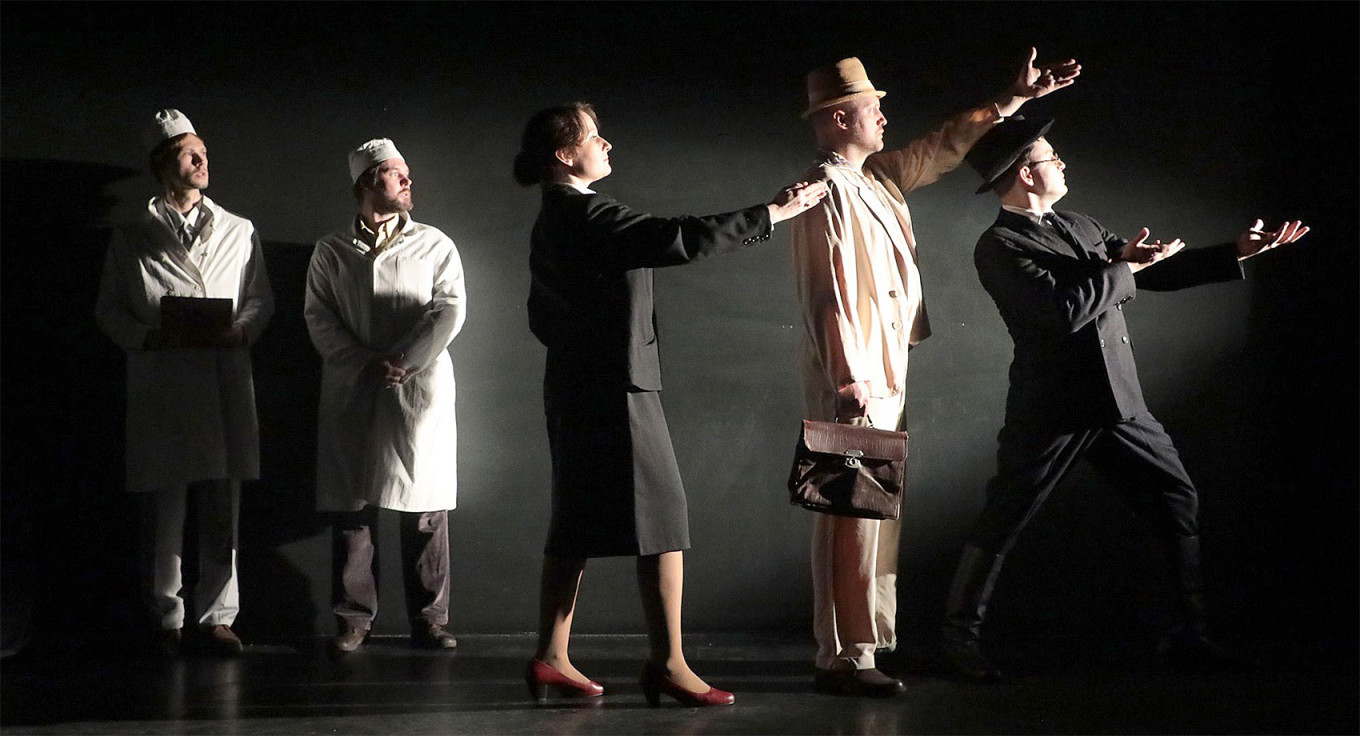
There is one last way to see honest and brave performances in modern Russia — visit independent theaters. For example, the country still has the small but famous DOC theater, which does not receive money from the state budget.
This isn’t easy. The landlord the theater had rented from for years suddenly refused to renew the lease in February 2023.
“After that,” a DOC actor told The Moscow Times, “we didn't have our own place for a long time and we played on different stages. We eventually found a small site.”
The theater's actors and directors continued to rehearse and create new performances despite the problems with the premises. They put on the play "Like Alice, I'm Tired of Being Surprised" in 2023. The theater website describes the play like this: “The issue of internal and external emigration is no longer rhetorical. Is it possible to escape yourself? Is there any way to save yourself? Is it possible to discuss the present without offending anyone? We'll give it our best shot.”
However, the fact that the theater continues to produce risky works does not imply that all of its employees are in opposition, an actor told The Moscow Times.
“Interestingly, we have playwrights who were forced to leave the country, actors who do not support the war, and also those who calmly travel to Crimea and support government policies.”
DOC theater is not the only independent theater in Russia. But theaters in this sector of Russian culture try to work silently, Kovalskaya said.
“It will develop contrary to the will of the state to control everything. So if you want to see opponents of the war and the regime in Russia, go to this kind of theater. You can’t go wrong.”
A Message from The Moscow Times:
Dear readers,
We are facing unprecedented challenges. Russia's Prosecutor General's Office has designated The Moscow Times as an "undesirable" organization, criminalizing our work and putting our staff at risk of prosecution. This follows our earlier unjust labeling as a "foreign agent."
These actions are direct attempts to silence independent journalism in Russia. The authorities claim our work "discredits the decisions of the Russian leadership." We see things differently: we strive to provide accurate, unbiased reporting on Russia.
We, the journalists of The Moscow Times, refuse to be silenced. But to continue our work, we need your help.
Your support, no matter how small, makes a world of difference. If you can, please support us monthly starting from just $2. It's quick to set up, and every contribution makes a significant impact.
By supporting The Moscow Times, you're defending open, independent journalism in the face of repression. Thank you for standing with us.
Remind me later.



